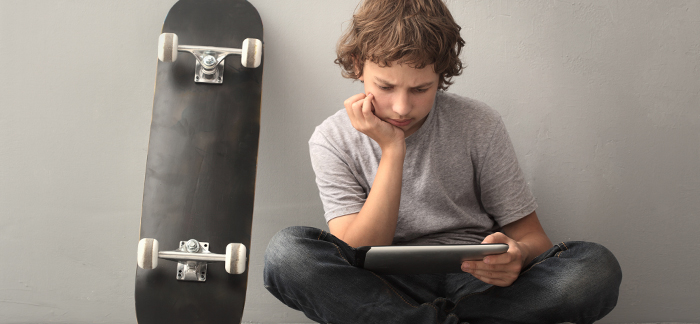
Picture a perfect family dinner table setting: you and/or your partner have cooked up exceptional family dinner. The kids rush down to eat and excitedly tell you about their day of climbing trees and building sand castles. And all the while your late father looks down approvingly at your parenting skills from a framed picture on the wall. If this sounds too good to be true, well, that’s because it is. These days, for most of us, getting our children to acknowledge our presence (although, not our wallets) can be hard enough, never mind getting them to sit and eat with us. They’re isolated in their own worlds, and technology could be a huge reason why.
Our devices have become such an integral part of all of our lives that it’s easy to think of our children’s relationships with them as benign, but the dynamic can become unhealthy, and we owe it to our children to learn about what some of the damaging effects a technology overload on them can be.
UK Psychologist, Sue Palmer, has written several books about child development and done extensive research on the harmful effects of technology on our children. She argues that our kids are spending far too much time on electronic devices, and that to these “techno-tots” the i-pad has become the modern-day pacifier. The instant satisfaction these devices provide threaten to render all traditional forms of learning obsolete. Why bother with fostering the imagination by reading a book when a multi-sensory experience that does all of that for you is merely a swipe away? Considering how fundamental the early years can be to a child’s mental development, it is quite unsettling to think about what the long-term effects of technological exposure might be.
She also warns us that the more time our kids spend partitioned off from one another glued to their screens, and not playing outside in a controlled environment with their peers, the more their socialization skills could be hindered. Not to mention the potential for obesity that might result from a lack of play.
The American Academy of Pediatrics recommends limiting engagement with smart devices to 2 hours a day for children over two, and none for those younger. Thankfully there are ways to curtail your child’s screen-time. Apps such as OurPact, Secureteen and getScreen allow parents the option of remotely deactivating their childrens’ devices for those set times allocated to homework activities or bedtime.
Ultimately, though the responsibility still falls on us to be active participants in our childrens’ lives, and intervene when we feel their development might be jeopardized. In doing so we might actually find that they aren’t the only ones who need to spend less time on these devices. Technology is an inescapable facet of modern life and is here to stay, one thing that need not change, though, is our need to be present in our childrens’ lives and provide them with the support and love that only we can offer.
Date Published: 13 June 2017